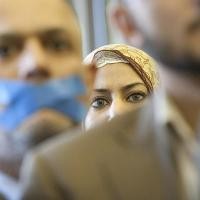
Was there an explicit rule against the Irvine 11's act of protest at the Israeli Ambassador event?
The defense argues there was not, and witnesses have testified that at such controversial events, it may be impossible to enforce one.
Sociologist Steven Clayman took the stand on Thursday, the final day of testimony. He is an expert in “speaker-audience interaction,” and has written a scholarly article titled, “Booing: The Anatomy of a Disaffiliative Response,” which examines environments such as presidential debates, TV talk shows and British Parliament. He believes audience participation cannot be prevented because members of the crowd are “free agents,” able to express approval or disapproval of what a speaker is saying.
]
Having watched a video of the Irvine 11 incident, Clayman affirmed that the audience response seemed to be a “normal and unavoidable” part of Ambassador Michael Oren's speech.
Lead prosecutor Dan Wagner then fired, “It's unavoidable that 10 people would stand up with planned statements that have nothing to do with what the speaker is saying? . . . Are you saying that the only way to prevent [protests] is to put a straitjacket and muzzle on them?” The questions were stricken by the judge.
Ten UC Irvine and UC Riverside students have been charged with misdemeanor conspiracy to commit a crime and misdemeanor disruption of a meeting. To be convicted of the latter, one must commit an act that violates the “implicit customs” or “explicit rules” for the event. The defense team claims the defendants did neither, arguing that they were merely following the norms and customs of protests on college campuses.
Dozens of people filled the courtroom, mostly family members and supporters of the Irvine 11. Shakeel Syed, executive director of the Islamic Shura Council of Southern California, said the situation is “extremely alarming.”
“When dissent is questioned in a court of law, one may argue it's the beginning of the death of democracy,” he said. “I would be just as concerned if they were to prosecute one of any faith or ethnicity in this manner.”
Syed believes there should be rules. “If dissent is going to harm somebody or if there is imminent danger–there is a line, undoubtedly,” he said. “But that wasn't the case here. There was no harm, no imminent danger. It was a mere passionate expression of disagreement.”
Rabbi David Eliezrie thinks otherwise. He is the president of the Rabbinical Council of Orange County, and attended the Israeli Ambassador event last year.
“If they wanted to go outside and walk around with signs, that's their right,” he said.
As for the way the students protested, he said, “It was intimidation. It was disruption. It was everything just short of violence.”
Closing arguments are scheduled to be heard on Monday.

